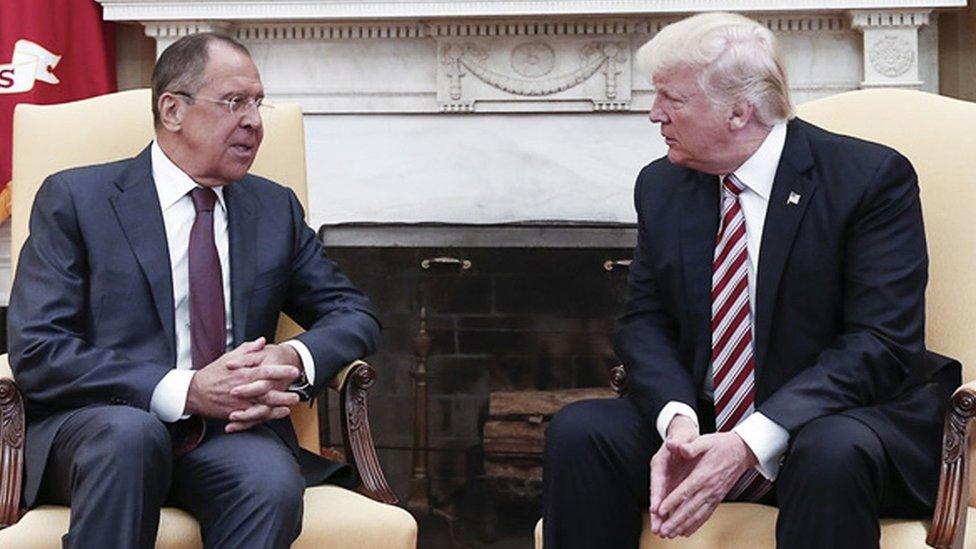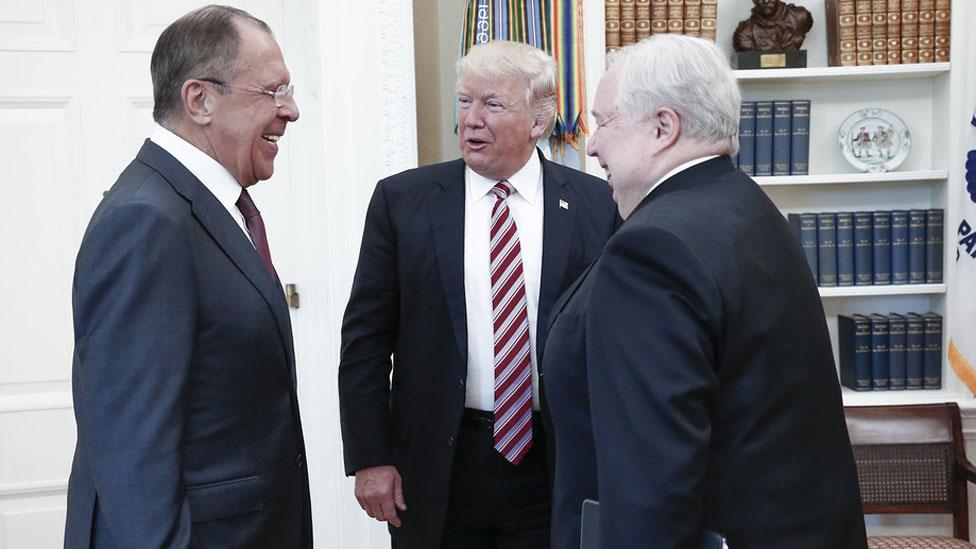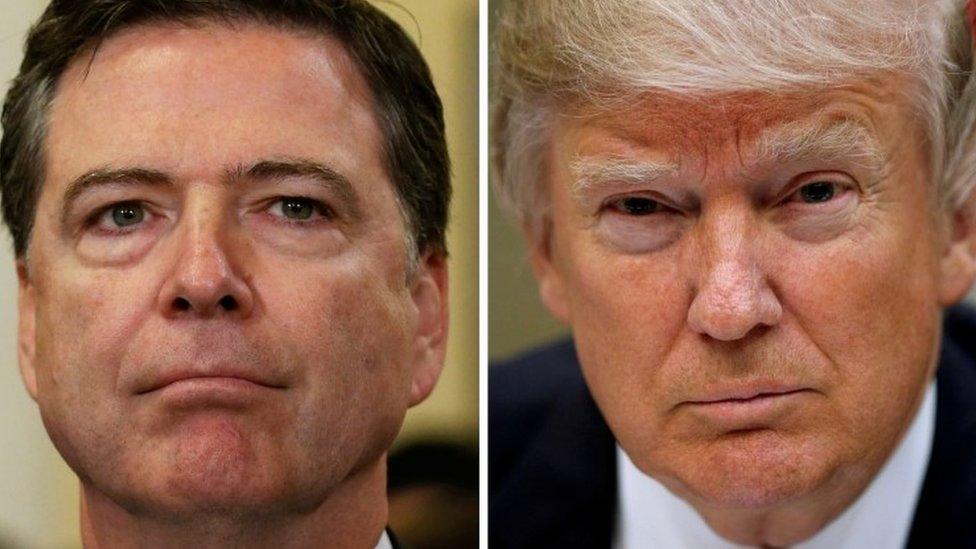Can President Donald Trump share top secret information?
- Published
Why did Trump give information to the Russians? The reporter who broke the story explains.
Donald Trump has once again found himself at the centre of a storm - this time for reportedly sharing "codeword classified" information with the Russian ambassador.
The information, which related to the use of laptops on aircraft, is understood to have been passed to the Americans by an ally who had apparently chosen not to share it with Moscow.
Mr Trump said he "had the absolute right" to tell the Russians "acts pertaining to terrorism and airline safety".
Can Trump divulge classified information?
Any other government employee would probably have lost security clearance, or even be charged under espionage laws.
But US presidents enjoy wide latitude in declassifying information under their powers, which means Mr Trump's alleged disclosure was not illegal.
As Steven Aftergood, a government secrecy specialist with the Federation of American Scientists, told the New York Times, external: "It is an expression of presidential authority, and that means that the president and his designees decide what is classified, and they have the essentially unlimited authority to declassify at will."
However, Mr Trump could have damaged an intelligence-sharing partnership if he revealed information without permission from the ally who provided it.
The BBC's security correspondent Frank Gardner has said: "There is a golden rule in the world of espionage that when one government supplies intelligence to another it must not be passed on to a third party without permission of the original supplier.
"The reason is simple: it could put the lives of their human informants at risk."
McMaster: 'Trump not even briefed on intel source or method'
Has Trump committed treason?
Eliot Cohen, a former senior State Department official under former President George W Bush, tweeted, external: "If accidental, it would be a firing offence for anyone else. If deliberate, it would be treason".
However, it is thought that under the US constitution, Mr Trump would have to be helping a country that the US is at war with in order for it to be considered treason.
Though US relations with Russia remain strained, the two countries are not at war.
Article 3, Section 3 of the Constitution states: "Treason against the United States, shall consist only in levying War against them, or in adhering to their Enemies, giving them Aid and Comfort."
Mr Trump would have to be actively "levying war" or providing "aid and comfort" to an enemy in order to build a treason case, UC Davis law professor Carlton Larson told Vox, external, but such prosecutions are difficult.
When Trump slammed Clinton over classified material
Could he be impeached?
What Mr Trump did could theoretically be grounds for impeachment if Congress determined he had violated the presidential oath of office, but that would be a longshot.
Mr Trump swore to "faithfully execute the Office of President of the United States" and to "preserve, protect and defend the Constitution of the United States" to the best of his ability.
By sharing highly sensitive information with an adversary foreign government, he could be considered in breach of executing his oath of office, the Lawfare blog pointed out., external
Congress, led by Mr Trump's Republican party, would have to agree that Mr Trump must be removed from office to trigger an impeachment trial.
A majority of the House would have to vote for it and a two-thirds majority of the Senate would be required to agree to convict him.
Have any other presidents done this?
It's not unheard of for the White House to reveal classified details to foreign governments, according to David Priess, author of the President's Book of Secrets.
President George W Bush had several foreign leaders join him for daily classified briefings, including British Prime Minister Tony Blair, Japanese Prime Minister Junichiro Koizumi and Russian President Vladimir Putin.
But as Mr Priess explains, the CIA prepared special briefing material to ensure nothing was shared that would jeopardise US intelligence.
In Mr Trump's case, however, the CIA did not appear to be alerted of his plan to reveal information, according to the Washington Post report.

The information is understood to relate to so-called Islamic State, and had been shared by a third party
- Published16 May 2017

- Published13 May 2017

- Published10 May 2017
- Published10 May 2017